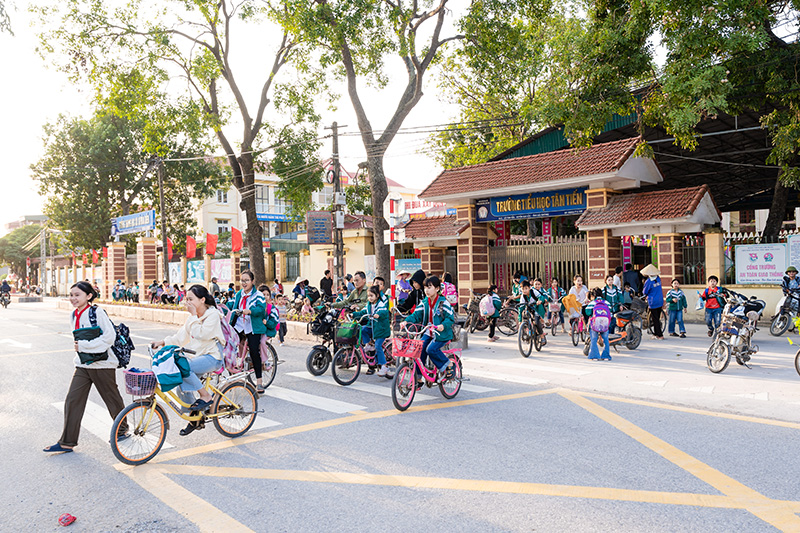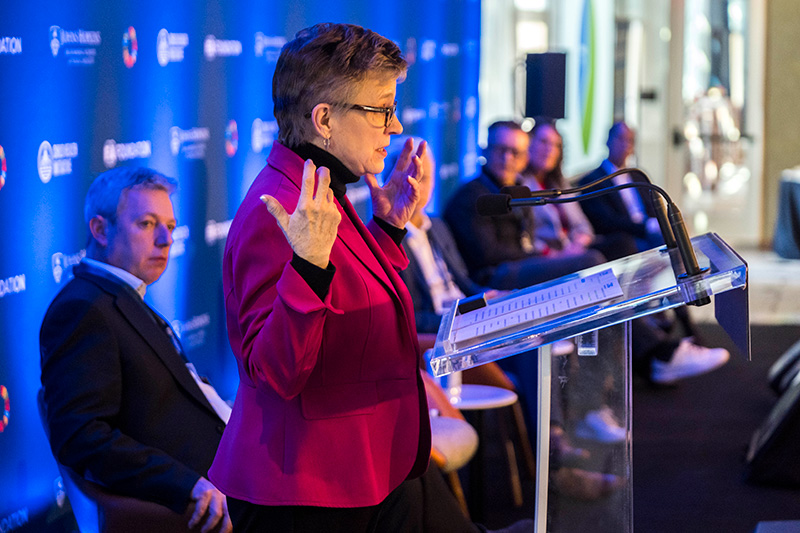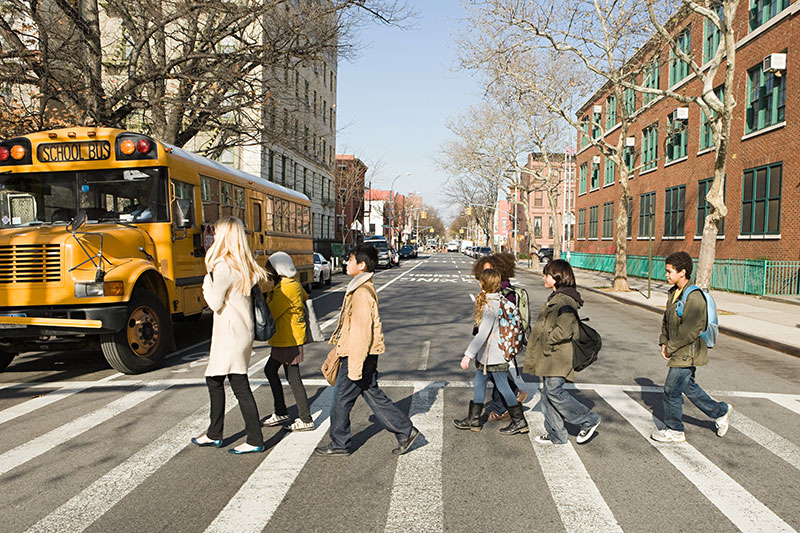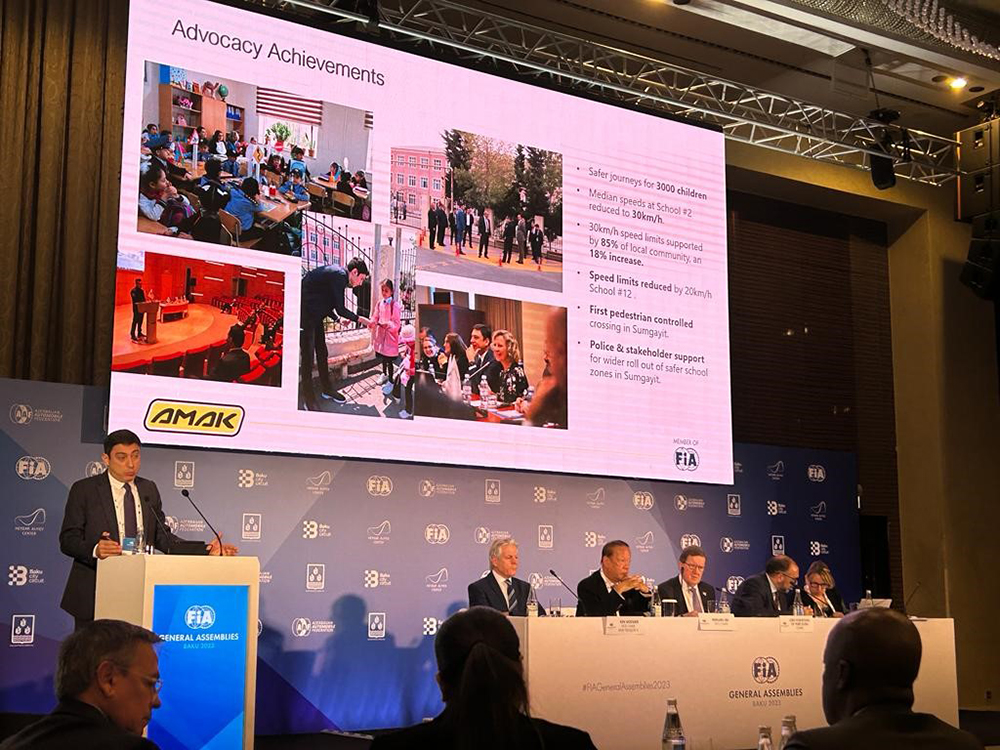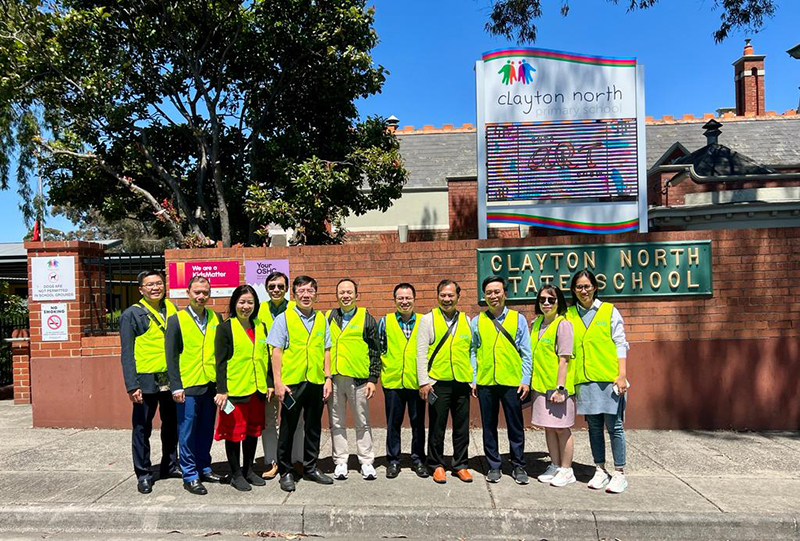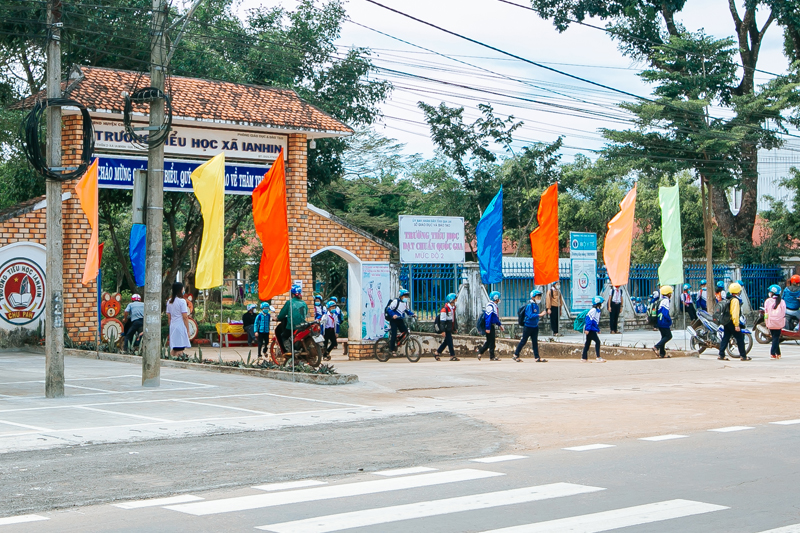Zoleka Mandela calls for a ‘step change’: safe walking for all Africa’s children
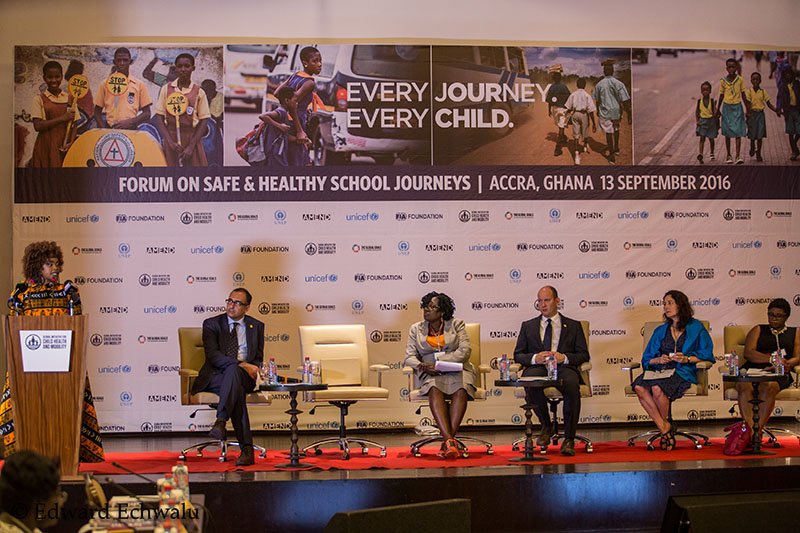
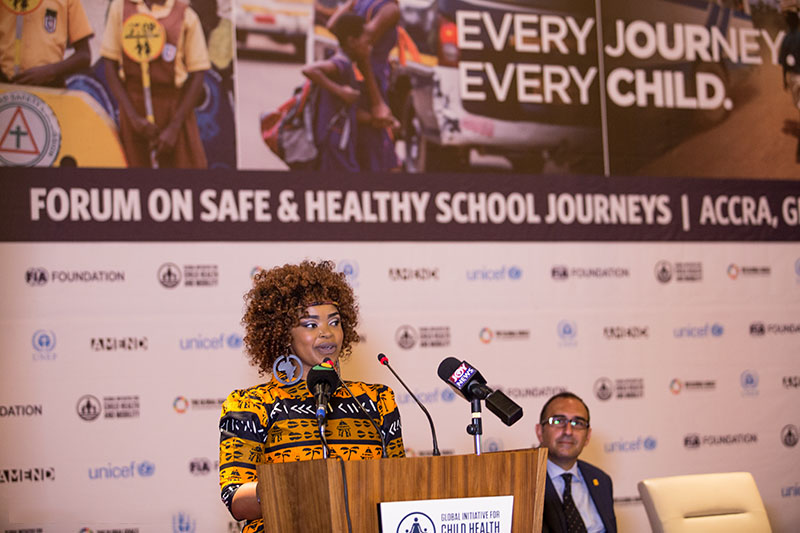
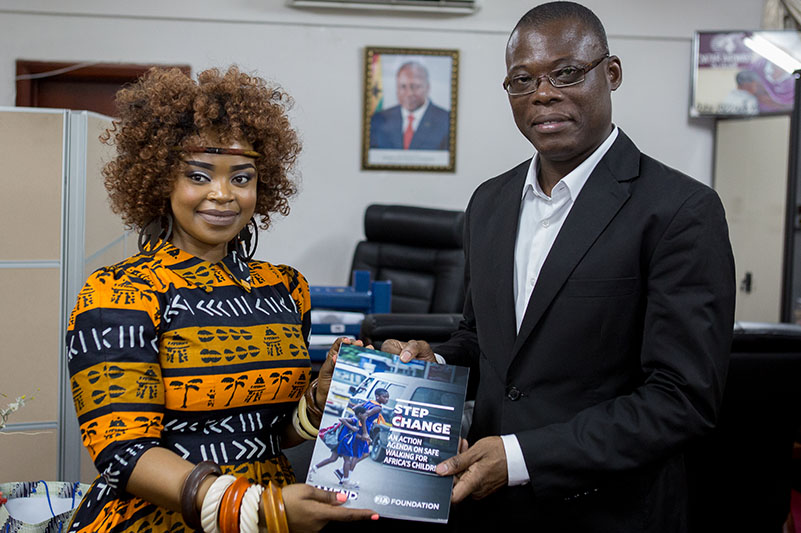

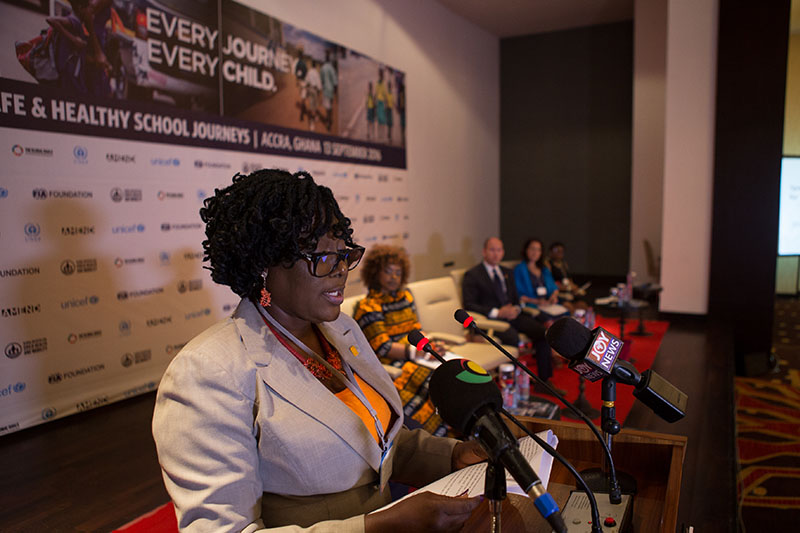
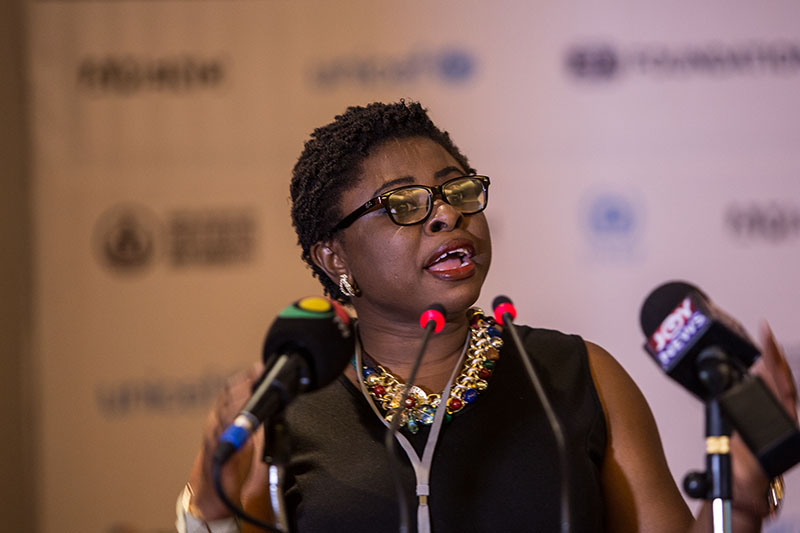
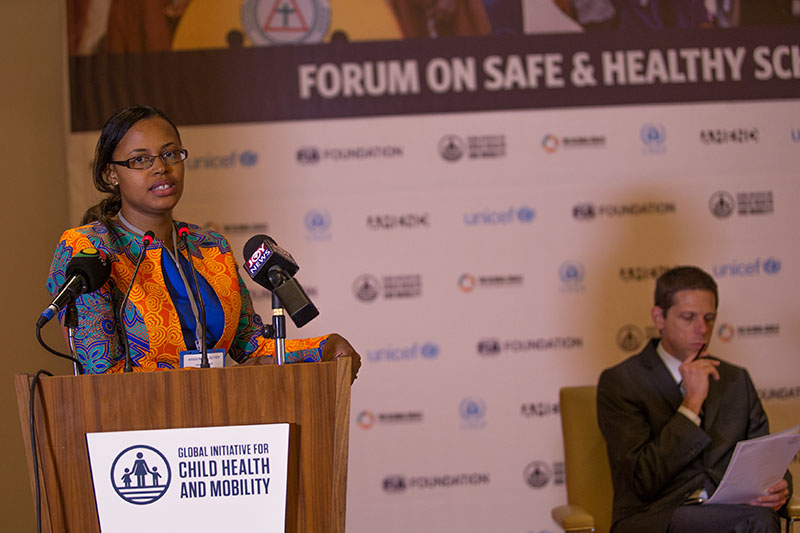
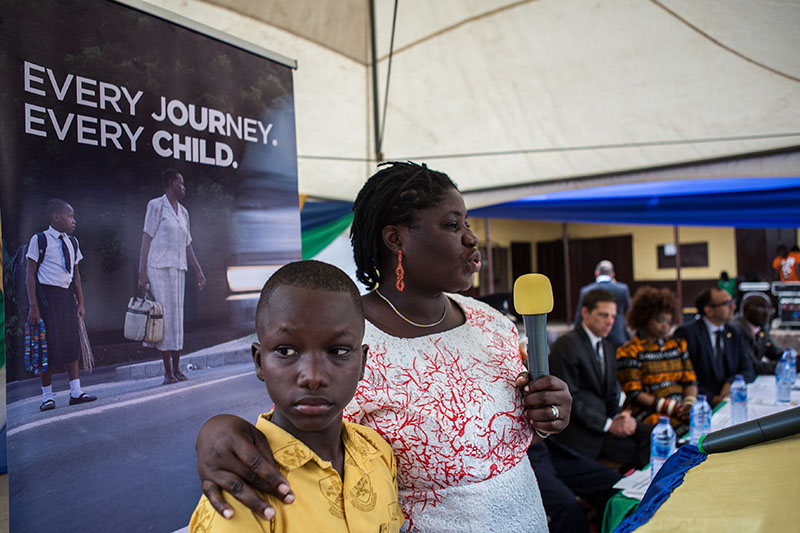
Urgent action is needed to protect children on Africa’s roads according to Nelson Mandela’s granddaughter, Zoleka Mandela, who has joined the FIA Foundation, UNICEF and Amend to launch a new report at a Forum on Safe & Healthy Journeys to School in Accra, Ghana.
The report, ‘Step Change: An Action Agenda on Safe Walking for Africa’s Children’, shows that while three quarters of children walk to and from school their needs are neglected, with inadequate footpaths or safe crossings and limited efforts to manage vehicle speed. As a result they suffer a severe burden of road traffic injury. According to the Global Burden of Disease more than 85,000 African children and youth are killed or seriously injured on the continent’s roads each year – a top five cause of death for the over-fives in many Africa countries. Zoleka Mandela presented the report and discussed its findings with Ghana’s Minister of Transport, Hon. Fifi Kwetey.
Step Change outlines the life-saving policies and interventions which are urgently required. Prioritising investment for safe walking, through providing footpaths and safe crossing points, and through reducing vehicle speed by road design and traffic calming, is a relatively low-cost but highly effective public health investment, says the report. It is an argument that has recently been boosted by inclusion of the objective of ‘safe and healthy journeys to school for every child as a priority’ in the Habitat III New Urban Agenda.
Launching the report at the Forum on Safe & Healthy School Journeys in Accra on 13th September 2016, Zoleka Mandela, Ambassador for the Global Initiative for Child Health and Mobility, said: “We are here today to get to grips with a crisis on our continent that has been ignored for too long. Road traffic injury is the single greatest danger our children face each and every day. It is entirely preventable. What we’re asking for really, is quite simple. We’re asking for protection and safety. Safe walking for all our children surely must be a fundamental right. No excuses are acceptable. This must become a priority in policy making here in Ghana and around the world.”
The report has been published by the FIA Foundation and the Amend NGO as part of the Global Initiative for Child Health and Mobility. Amend is implementing road safety education and infrastructure programmes in Ghana and several other countries across sub-Saharan Africa. Their research has shown that providing footpaths, safe crossings and speed reduction measures in the area of schools alone can reduce injuries by at least 25%. Ayikai Poswayo, Programme Manager of Amend, said: “Ghana’s greatest resource and hope are its children. We need to do all we can to protect them on the roads and we know how. Now is the time for a real step change on the ground. We cannot afford to fail.”
The Forum on Safe and Healthy School Journeys brought Ghanaian and international policy makers together to discuss the report’s recommendations and advance the agenda to protect children on the roads across Africa. Participants at the forum included the Ghana National Road Safety Commission, led by Executive Director May Obiri Yeboah; UNICEF, represented by senior adviser on Child Protection Judy Grayson; the Bloomberg Initiative for Global Road Safety, which is working in Accra; senior officers of the Ghana Police Service; representatives of a number of government departments and of civil society. The meeting concluded with a commitment to establish a national coalition for safe and healthy school journeys, to explore how a more sustained effort can be made to protect children.
Participants also visited a school close to the N1 ‘George W Bush’ Highway, where heavy traffic is blighting the surrounding communities. At the Christ Mission School in Kwashieman, Amend has delivered its School Area Road Safety Assessment & Improvement (SARSAI) programme, with a new footpath and speed humps in the school environs. The return to school of a student, Michael Obeng, who suffered a serious road traffic injury which kept him in hospital for two months, coincided with the event, and Michael’s aunt and teacher both spoke about the impact that the injury had on Michael, his family and the wider community.
Read the report ‘Step Change: An Action Agenda on Safe Walking for Africa’s Children’

